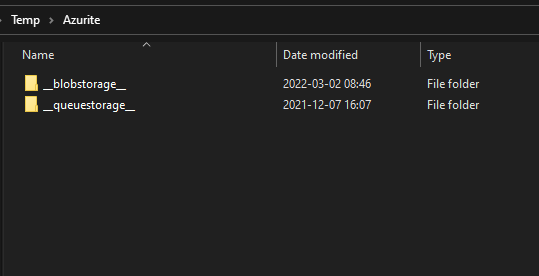I'm running a project which has Azure function, but it's not running my azure function. I have put the breakpoint, its also not hitting the breakpoint. Also, the output is not clear so that I can debug my code. Is there any way to debug the code to find the root cause of the issue?
Output:
[3/20/2018 9:39:31 AM] Reading host configuration file 'C:\Users\myname\Source\MyProject\aspnet-core\src\Nec.MyProject.Processors\bin\Debug\netstandard2.0\host.json' [3/20/2018 9:39:31 AM] Host configuration file read: [3/20/2018 9:39:31 AM] { [3/20/2018 9:39:31 AM] "queues": { [3/20/2018 9:39:31 AM] "maxPollingInterval": 1000, [3/20/2018 9:39:31 AM]
"visibilityTimeout": "00:00:00", [3/20/2018 9:39:31 AM]
"batchSize": 1, [3/20/2018 9:39:31 AM] "maxDequeueCount": 5 [3/20/2018 9:39:31 AM] } [3/20/2018 9:39:31 AM] } [3/20/2018 9:39:48 AM] Generating 15 job function(s) [3/20/2018 9:39:48 AM] Starting Host (HostId=windowsmyname-655615619, Version=2.0.11415.0, ProcessId=6320, Debug=False, ConsecutiveErrors=0, StartupCount=1, FunctionsExtensionVersion=) [3/20/2018 9:39:49 AM] Found the following functions: [3/20/2018 9:39:49 AM] MyCompany.MyProject.Processors.BackOfficeFilesGeneratorJobs.RunTestGeneratorAsync [3/20/2018 9:39:49 AM] [3/20/2018 9:39:49 AM] Job host started Listening on http://localhost:7071/ Hit CTRL-C to exit... [3/20/2018 9:39:50 AM] Host lock lease acquired by instance ID '000000000000000000000000C78D3496'.
Azure Function:
[FunctionName("GenerateTestOfficeMasterDataFiles")]
public static async Task RunTestGeneratorAsync(
[QueueTrigger("%MasterDataFiles:Supplier:QueueName%", Connection = "ConnectionStrings:BlobStorageAccount")] BackOfficeFileGeneratorMessage<string> message,
ExecutionContext context,
TraceWriter log)
Note: It was working fine when it was BackOfficeFileGeneratorMessage instead of BackOfficeFileGeneratorMessage<string>.
Update:
public class BackOfficeFileGeneratorMessage<TEntityKey>
{
public BackOfficeFileGeneratorMessage()
{
Items = new MasterDataFileOperationItem <TEntityKey>[0];
}
public bool UseStaging { get; set; }
public string StoreNo { get; set; }
public bool RefreshAll { get; set; }
public IEnumerable<MasterDataFileOperationItem <TEntityKey>> Items { get; set; }
}

